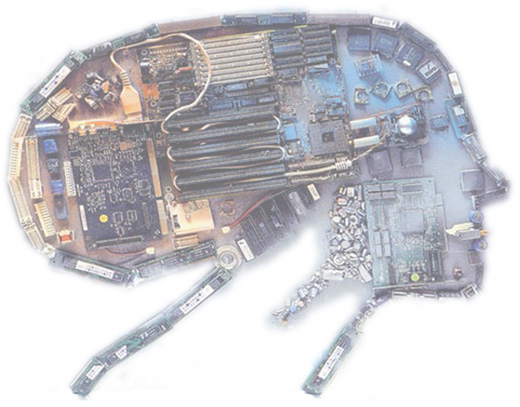


Our ninth one-day Master Class for high-school teachers again featured 4 excellent and diverse presentations.
Dr. Stephen Cox (School of Information Systems, UEA) spoke about recent advances in computer translation of human language. He outlined the exciting possibilities of linking this technology to speech recognition and synthesis technology, and the fascinating problems that remain to be solved in these areas. Stephen has been responsible for developing the technology behind the the TESSA system in collaboration with the Post Office. TESSA is a speech to sign language "translation'' system that is built to function in a Post Office where the discourse is very limited in its content and scope. TESSA raises interesting questions about the processing of speech and language in constrained systems. The TESSA system won a gold medal from the British Computer Society in November 2000.
Our second speaker was Prof. Kevin Warwick (Department of Cybernetics, School of Systems Engineering, University of reading) who discussed whether robot machines can really be intelligent. Many scientists have pointed to a way in which humans might be able to stay in control of machines, no matter how intelligent they are .. but this requires a human/machine symbiosis with the two entities physically linked together. Author of 'I, Cyborg', Kevin also spoke of his experiences of having his nervous system linked to a robot!
Dr. George Smith (School of Information Systems, UEA) then spoke about the understanding of event sequences, artificial neural networks and data mining. Organisations store vast amounts of information and these 'data warehouses' can be 'mined' for interesting and useful patterns. George kindly led one of the afternoon sessions illustrating the practical elements of data-mining.
The final speaker, Prof. Maggie Bowden OBE (Cognitive and Computing Sciences, Sussex University) focussed on the two main thrusts of AI: on the one hand AI-researchers are 'engineers' who want to build a program or a robot to do useful things. On the other hand there are AI-researchers who are interested in how the human mind works, and try to use AI to find out more about how we manage to do things.